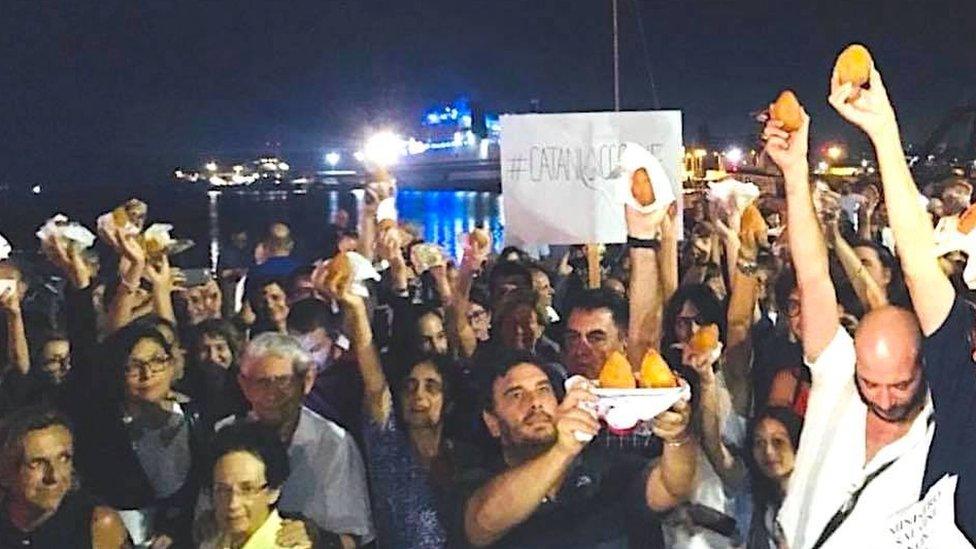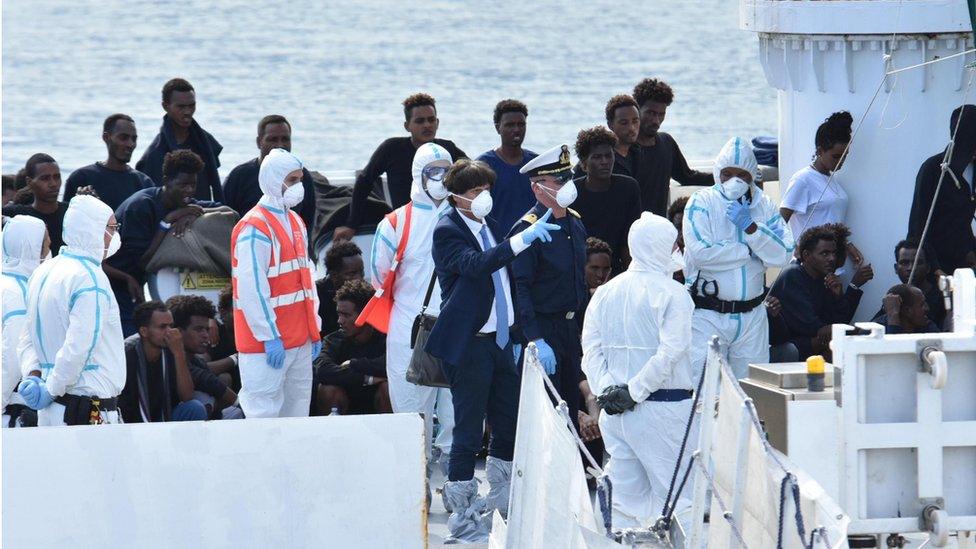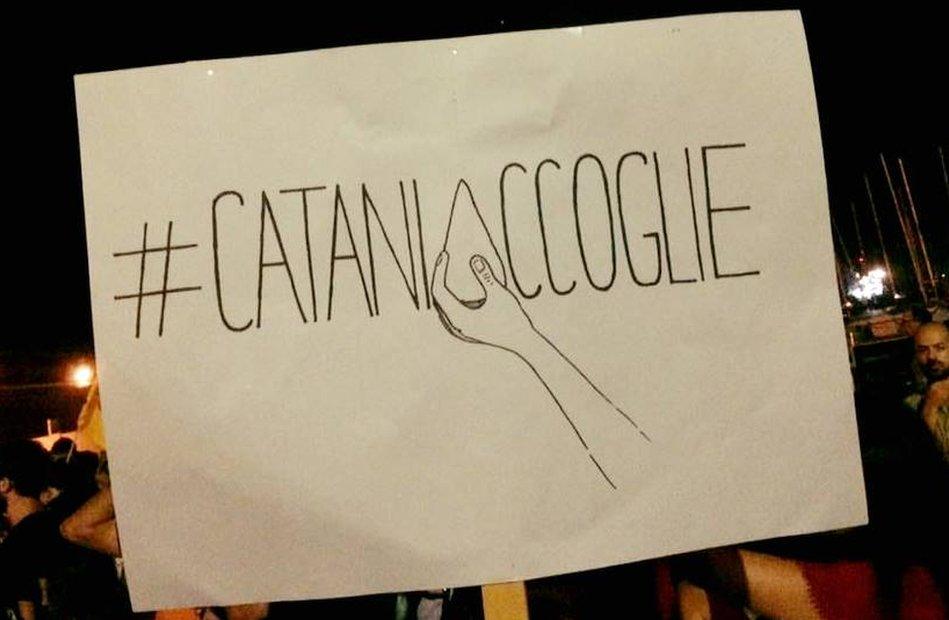Diciotti: Rice ball protest in Italian migrant boat row
- Published

Protestors brandishing arancini in Catania, Sicily, where a boat with around 200 rescued migrants who have been denied permission to disembark
Deep-fried rice balls stuffed with meat and vegetables are one of Italy's most famous foods.
But now arancini are being brandished in protests about approximately 170 migrants trapped on the ship Diciotti in the port of Catania, Sicily.
Nearly 200 people were rescued from the Mediterranean on 15 August, but Italy's Interior Minister Matteo Salvini is denying the coastguard vessel permission to disembark the majority of them until the EU agrees to distribute the migrants across other countries.
There have been more than 315,000 tweets about the issue: hashtags "Catania Welcomes" (#CataniaAccoglie) and "National Disgrace" (#diciottivergognanazionale) have been trending, while supporters of the block on the ship have used "I stand with Salvini" or "No Way".
The episode is the latest in a deepening political row as Mr Salvini, known for populist gestures, seeks to capitalise on anti-immigration sentiment.

The prosecutor of Agrigento, Luigi Patronaggio (c), visited the ship on Wednesday
The ship has been docked in Catania since Monday, but the arancini protests began on Wednesday night when around 300 people gathered close to the Diciotti, calling for the migrants to be allowed on shore.
Arancini represents not only a snack to be eaten while travelling but something to offer hungry guests, participants told news site The Local., external
"They are a symbol of sharing for our city, we are here to welcome them," one protester told Italian newspaper La Repubblica., external
"For us in Sicily, food has always been the way you welcome guests," one woman explained.

Protesters carried signs reading "Catania Welcome" with pictures of arancini
One man, Maicon Thelega posted a picture of arancini on Twitter, writing that they were a symbol of inclusivity.
Allow X content?
This article contains content provided by X. We ask for your permission before anything is loaded, as they may be using cookies and other technologies. You may want to read X’s cookie policy, external and privacy policy, external before accepting. To view this content choose ‘accept and continue’.
Late on Wednesday, 27 unaccompanied minors were allowed off the vessel, despite calls for them to be allowed off earlier.
The migrants' nationalities are not clear, but almost all the children were from Eritrea, a country whose compulsory military service regime has been likened to slavery by the UN.
A psychologist from Medecins Sans Frontieres (MSF), Nathalie Leiba, who treated some of the minors, said many of them were "exhausted and confused".
"One of them couldn't see well, he had dilated pupils, he told me that he had been detained (in Libya) in the dark for a year," she told AFP.
Prosecutors in the Sicilian city of Agrigento have opened an inquiry into the illegal detention of the migrants on the ship.
Mr Salvini has used social media to boost public support for his position, external, tweeting his opposition to the inquiry.
People opposed to the migrants being allowed ashore are tweeting "I stand with Salvini", as some question why Italy remains at the European frontline in the migrant crisis.
Since 2014, more than 640,000 migrants have landed on Italy's shores. Although many have since left for other countries, some remain.
In July 450 migrants were allowed to disembark in Sicily once France, Germany, Malta, Portugal and Spain had each agreed to take 50 migrants each.